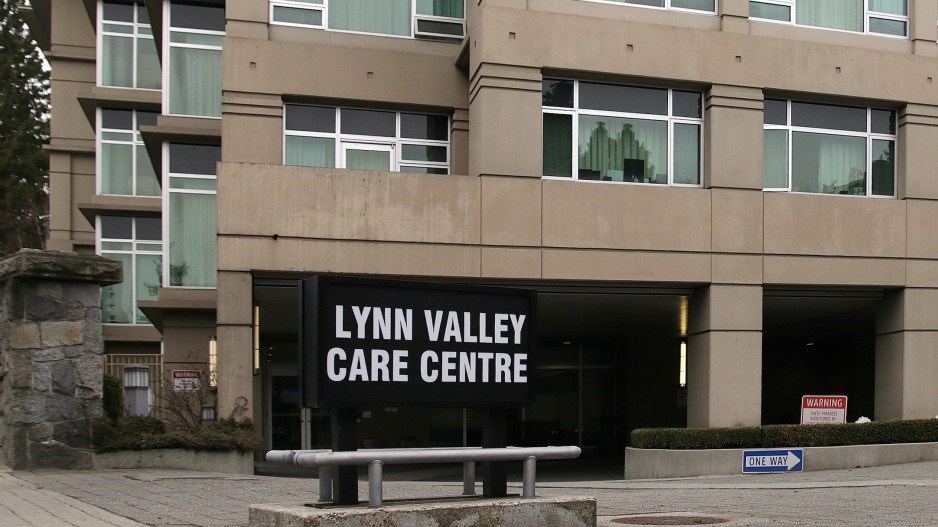What happened: The number of seniors' care homes in B.C. that have recorded at least one case of COVID-19 in a worker or a resident has jumped by nearly half overnight, to 19 from 13. Seven remain unidentified.
Why this matters: Many residents in these homes, and their families, are concerned about outbreaks at these homes because the fatality rate from COVID-19 has been estimated at about 15% in seniors. All but one of the 24 deaths that B.C. has so far recorded from the pandemic were in people aged 70 or older. The other death was a person who was in their 60s. "Most" of those deaths involved people connected with seniors' homes, according to B.C.'s provincial health officer.
B.C. saw the largest daily jump yet in the number of seniors' care homes that have had recorded cases of COVID-19 in residents or staff on March 31. The province ended the month with 19 seniors' facilities that have had outbreaks, although in most of the homes it was a single case, provincial health officer Bonnie Henry told media March 31.
Henry did not reveal which six facilities recorded cases overnight, following a pattern that started March 28, when she neglected to identify the name of the 12th seniors' home, which she said was in the Fraser Health region.
Fraser Health then on March 31 put out a release to say that Langley Lodge has identified a staff person who has the illness, and that person is self-isolating at home – indicating that this was the 12th home with an official case of the virus.
Seven other seniors' homes, however, remain unidentified by government and health authorities.
Henry said March 31 that all of the seniors' homes that have cases are in the Vancouver Coastal Health or Fraser Health regions and that most of the homes have had a single case.
"This reflects a very low threshold for declaring an outbreak," she said.
She noted that North Vancouver's Lynn Valley Care Centre and Vancouver's Haro Park Centre, in the West End, both have "full-blown outbreaks" with many staff and residents being infected. Care homes also are responsible for what she has said are the "vast majority" of the province's 24 deaths.
She last provided specific numbers for care homes' outbreaks on March 26, when she said Lynn Valley Care Centre had 70 infections in the facility, including those in 46 residents and 24 employees. That was up by seven new cases compared to the day before.
Haro Park Centre had the second largest cluster of COVID-19 infections in the province at the time, with 58 cases, including infections in 30 residents and 28 workers. That count was up by three compared with the day before.
As of that last data update, on March 26, West Vancouver's Hollyburn House had two cases: one resident and one worker.
The other eight homes with a single known case at the time were:
•Vancouver's Broadway Pentacostal Lodge;
•Vancouver's German Canadian Care Home;
•Vancouver's Little Mountain Place;
•Delta's Good Samaritan Delta View Care Centre;
•Coquitlam's Dufferin Care Centre;
•White Rock's Evergreen Heights Assisted Living;
•Surrey's The Harrison at Elim Village; and
•Langley's Chartwell Independent Living at Langley Gardens.
Business in Vancouver was not chosen at Henry's March 31 press conference to ask why Henry has stopped providing the names of seniors' homes that have outbreaks.
Henry did, however, elaborate a bit on what her reasoning might have been, saying that she identifies outbreaks in the community when there are ongoing investigations or fears that the virus is being transmitted in an ongoing way.
Henry has issued a provincial order that all workers at care homes only work at one specific home and she has said that this is now in effect. That order, however, relies on regional medical health officers to also make that order within their regions. Henry first issued her order last week but it has taken a while to be in place because of what she has called a "complex" web of different kinds of workers and a mix of union and non-union workers at the facilities.
Health region medical health officers have separately put in place orders for each home that has recorded an outbreak to not have employees work in different homes, Henry said last week.
To read about other aspects of Henry's March 31 press conference, including an outbreak among temporary foreign workers in Kelowna, click here.




